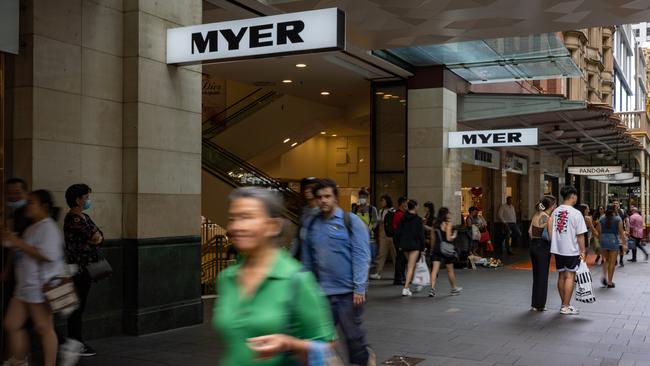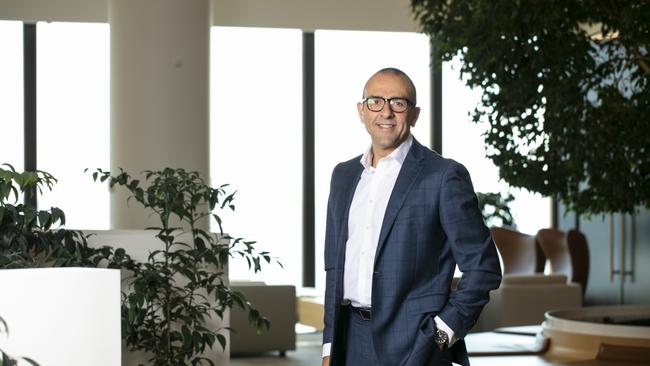Australian top CEOs expect economy to cause disruption in next year: EY CEO survey
Australia’s top CEOs are turning from climate change to focus on navigating the country’s economic slowdown and other issues likely to arise in the next year.

Australian chief executives are less focused on climate change and environmental issues than their global peers as the majority look to navigate their companies through an expected challenging 12 months ahead amid a shift in the global economy.
A key survey from EY of 60 CEOs who oversee businesses with revenue greater than $1bn suggests many are focused on addressing the ‘right now’ with 53 per cent expecting changes in the global economy, geopolitical dynamics, and trade tensions to cause disruption to big business this year.
Businesses have faced several years of disruptions since 2020 with supply chains woes, inflationary and interest rate pressures along with geopolitical disruptions from the Russian invasion of Ukraine and the ongoing conflict between Hamas and Israel since the October 7 attack.
EY Oceania David Larocca says Australian executives were acutely aware of their immediate challenges, and are focused on navigating the complexities of these issues, which understandably tempers their optimism for the global economy.
“Stubbornly high inflation, lacklustre productivity growth, global fracturing and geopolitical risk all remain potential weights on economic growth as they sap the supply side of the economy. The outcome of the US election is another uncertainty,” he said.
“All of these complexities are what leaders are grappling with as they plan in uncertain times. Their focus is understandably on addressing the ‘right now’.”
“But the reality is that all these disruptions are interconnected. Focusing solely on the ‘right now’ without considering the potential for longer-term disruptions could be a premature approach.”

Mr Larocca said climate change and environmental issues are perceived as less immediate disrupters and were ranked the lowest priority by those surveyed amid challenging conditions in the short term.
“It’s not a distant threat; it’s a present reality that is already starting to affect regulatory frameworks, where businesses put their money, and how they do business,” he said.
“As we approach the enforcement of new mandatory climate reporting legislation, it’s critical for business leaders to recognise that environmental sustainability is not just a compliance issue but a strategic one that presents opportunity – just like AI and other ‘obvious’ disrupters.”
Nearly two-thirds of Australian CEOs plan to actively pursue a strategic partnership in the next 12 months; 62 per cent will chase divestments or IPOs; and 48 per cent plan an acquisition.
Mr Larocca said that despite concerns about challenges in the next 12 months, there remained confidence and a desire in boardrooms to grow.
“Strategic partnerships and alliances are also taking place – and I imagine many of these will focus on tech, AI and upskilling the future workforce,” he said.
“The M&A market is seeing a pathway towards inflation being brought back to target, and therefore certainty around the likely cost of capital off the back of interest rate movements.”
Mr Larocca said Australia would also start to see a greater focus on “future” trends as the country emerges from the current economic downturn, and the race to innovate in a low-carbon, tech-fuelled market gains momentum again.
The EY CEO Outlook Pulse Survey surveyed 60 Australian CEOs from industries including consumer and health, financial services, energy, industrials, infrastructure and communications.
About 80 per cent were in charge of companies with revenue greater than $1.5bn.




To join the conversation, please log in. Don't have an account? Register
Join the conversation, you are commenting as Logout